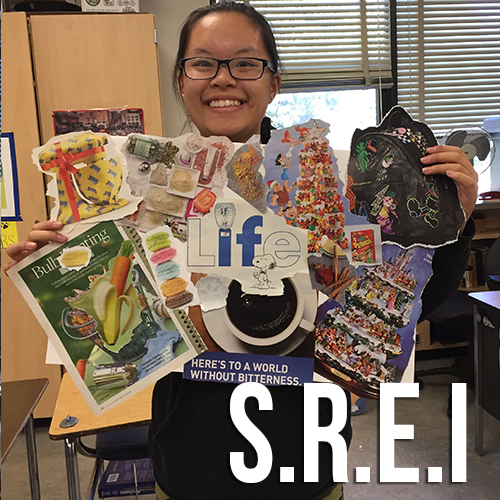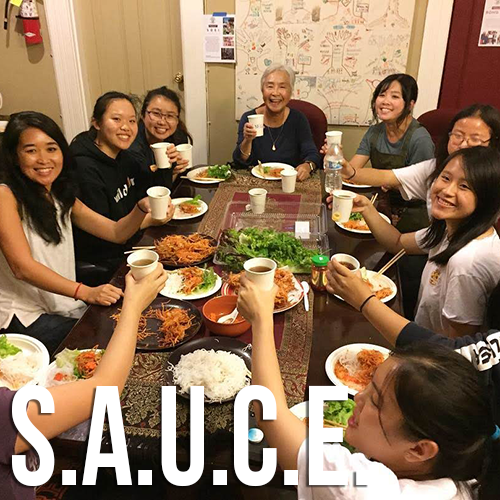Bong Srei Leadership
The Bong Srei (“older sister” in Khmer) is Banteay Srei’s cascading mentorship and leadership program where alumni become youth leaders of Banteay Srei. They attend an intensive leadership training at the beginning of the academic calendar, develop curriculum and programming, co-facilitate workshops with the Community Health Specialist, and further develop their leadership skills. Each month, Bong Srei youth leaders also attend a leadership training, topics ranging from working with different personalities to conflict mediation, in order to sharpen their leadership skills. The Bong Sreis are mentored by the staff but also mentor the current youth participants.
Self-Reliant Empowered Individuals – SREI
SREI is one of Banteay Srei’s empowerment programs where young Southeast Asian women are provided with a safe space to learn, teach, and ask questions about Southeast Asian cultures (i.e. Cambodian, Vietnamese, Iu-Mien, Lao, Khmu, and more), share their future goals, overcome violence, learn about women’s reproductive health, identify and address the issues of sexism, sexual exploitation, sexual harassment, bullying, but also moving forward through building healthy relationships and determining how we empower ourselves as young Southeast Asian women, especially in the streets of Oakland. Monica Then, along with four Bong Srei leaders, co-facilitate weekly SREI sessions every Tuesday. SREI seeks to empower young SEA women to identify long term goals in order to understand the economics of their lives, while making healthy decisions everyday for their bodies, themselves, their families and communities.
Southeast Asian Unity through Cultural Exploration – SAUCE
SAUCE is Banteay Srei’s peer and intergenerational cooking class, where young Southeast Asian women learn about traditional recipes and herbs in traditional Southeast Asian cuisine. SAUCE meets every Thursday. SAUCE is a space where the older and younger Southeast Asian generations are able to connect and foster healthy relationships with one another through cooking and eating traditional foods along with sharing stories of the refugee and resettlement experience. Each month, SAUCE invites a guest cook, a matriarchal elder in the community, who teaches a delicious traditional dish, and cooks if from scratch, while sharing her story of surviving thewars in Southeast Asia (Vietnam War), or growing up in Oakland as the 1.5 generation. Through SAUCE, participants also learn how to properly prepare food, cooking techniques, how to use kitchen tools, but most importantly engage with older generation and build their peer and intergenerational support system. Not only do the young women learn to cook, listen to stories, share their experiences of growing up in Oakland with each other, but they also learn and explore different herbs, spices, fusion recipes, healthy foods and sustainable living. SAUCE provides a space where young women develop leadership & team building skills, while having fun and engaging in their cultures.



